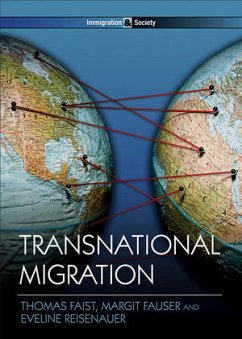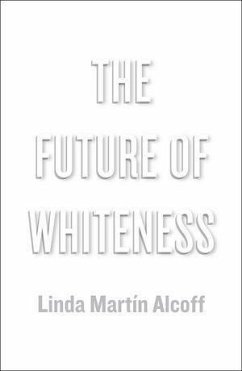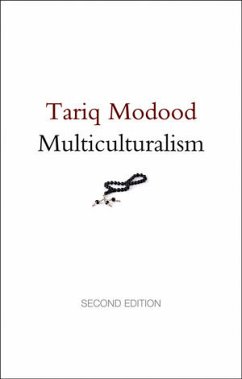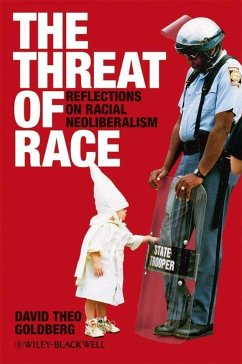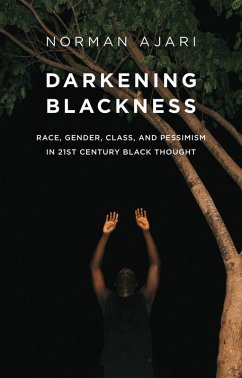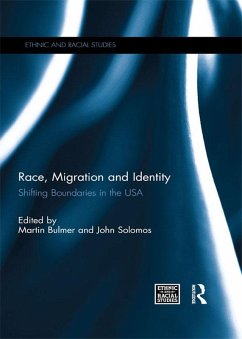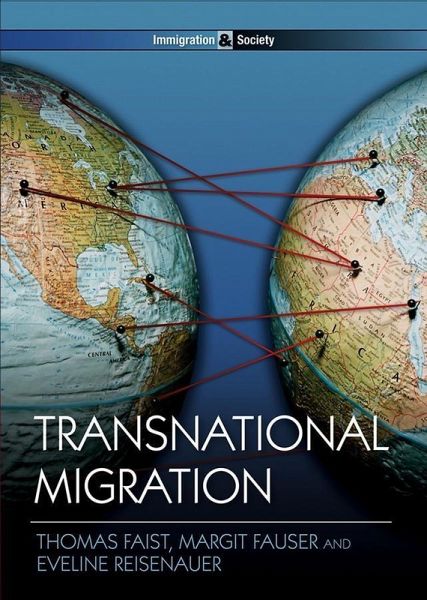
Transnational Migration (eBook, PDF)
Versandkostenfrei!
Sofort per Download lieferbar
17,99 €
inkl. MwSt.
Weitere Ausgaben:

PAYBACK Punkte
0 °P sammeln!
Increasing interconnections between nation-states across borders have rendered the transnational a key tool for understanding our world. It has made particularly strong contributions to immigration studies and holds great promise for deepening insights into international migration.This is the first book to provide an accessible yet rigorous overview of transnational migration, as experienced by family and kinship groups, networks of entrepreneurs, diasporas and immigrant associations. As well as defining the core concept, it explores the implications of transnational migration for immigrant in...
Increasing interconnections between nation-states across borders have rendered the transnational a key tool for understanding our world. It has made particularly strong contributions to immigration studies and holds great promise for deepening insights into international migration.
This is the first book to provide an accessible yet rigorous overview of transnational migration, as experienced by family and kinship groups, networks of entrepreneurs, diasporas and immigrant associations. As well as defining the core concept, it explores the implications of transnational migration for immigrant integration and its relationship to assimilation. By examining its political, economic, social, and cultural dimensions, the authors capture the distinctive features of the new immigrant communities that have reshaped the ethno-cultural mix of receiving nations, including the US and Western Europe. Importantly, the book also examines the effects of transnationality on sending communities, viewing migrants as agents of political and economic development.
This systematic and critical overview of transnational migration perfectly balances theoretical discussion with relevant examples and cases, making it an ideal book for upper-level students covering immigration and transnational relations on sociology, political science, and globalization courses.
This is the first book to provide an accessible yet rigorous overview of transnational migration, as experienced by family and kinship groups, networks of entrepreneurs, diasporas and immigrant associations. As well as defining the core concept, it explores the implications of transnational migration for immigrant integration and its relationship to assimilation. By examining its political, economic, social, and cultural dimensions, the authors capture the distinctive features of the new immigrant communities that have reshaped the ethno-cultural mix of receiving nations, including the US and Western Europe. Importantly, the book also examines the effects of transnationality on sending communities, viewing migrants as agents of political and economic development.
This systematic and critical overview of transnational migration perfectly balances theoretical discussion with relevant examples and cases, making it an ideal book for upper-level students covering immigration and transnational relations on sociology, political science, and globalization courses.
Dieser Download kann aus rechtlichen Gründen nur mit Rechnungsadresse in D ausgeliefert werden.




